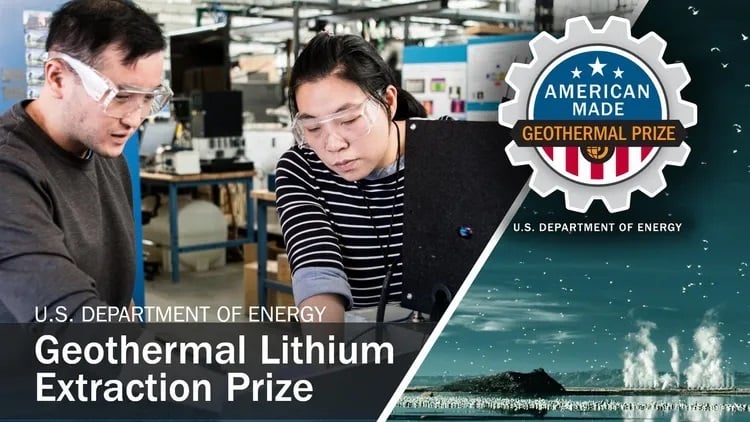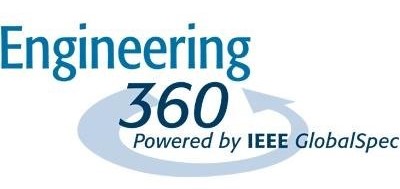S. Himmelstein | July 15, 2022
 Source: DOE
Source: DOE
Five Phase 2 finalists in the $4 million American-Made Geothermal Lithium Extraction Prize, a competition launched to foster development of technologies that will lower costs and reduce environmental impacts of extracting lithium from geothermal brines, have been revealed by the U.S. Department of Energy (DOE).
Each team will receive $280,000 and will compete in the third and final phase of the competition. The finalists are:
- George Washington University — The competition will foster development of technologies to lower costs and reduce environmental impacts of extracting lithium from geothermal brines. Team Ellexco: Chemical-free extraction of lithium from brines
- Rice University — Team LiSED: Lithium selective electrodialysis
- University of Illinois Urbana-Champaign — Team SelectPureLi: A redox membrane for lithium hydroxide extraction
- University of Utah — Team University of Utah: Engineered lithium ion-sieve technology
- University of Virginia — Team TELEPORT: Targeted extraction of lithium with electroactive particles for recovery technology (TELEPORT)
Over the next year, these teams will fabricate and test their designs and present prototypes to a panel of expert reviewers. The winners will be announced in the fall of 2023 and receive $2 million total.
Demand for lithium, a critical component in batteries for electric vehicles, grid-scale electricity storage, phones, and laptops, has increased significantly and global demand expected to increase 500% by 2050. The DOE initiative is intended to advance development of domestic, cost-competitive, sustainable sources of lithium, particularly around Southern California’s Salton Sea. This region can potentially produce more than 600,000 tons of lithium per year and support a robust U.S. supply chain.
